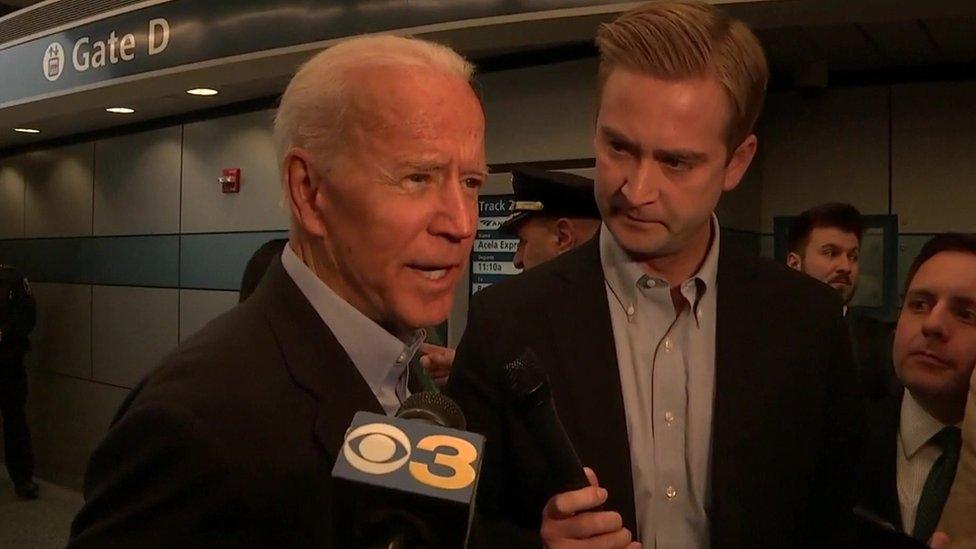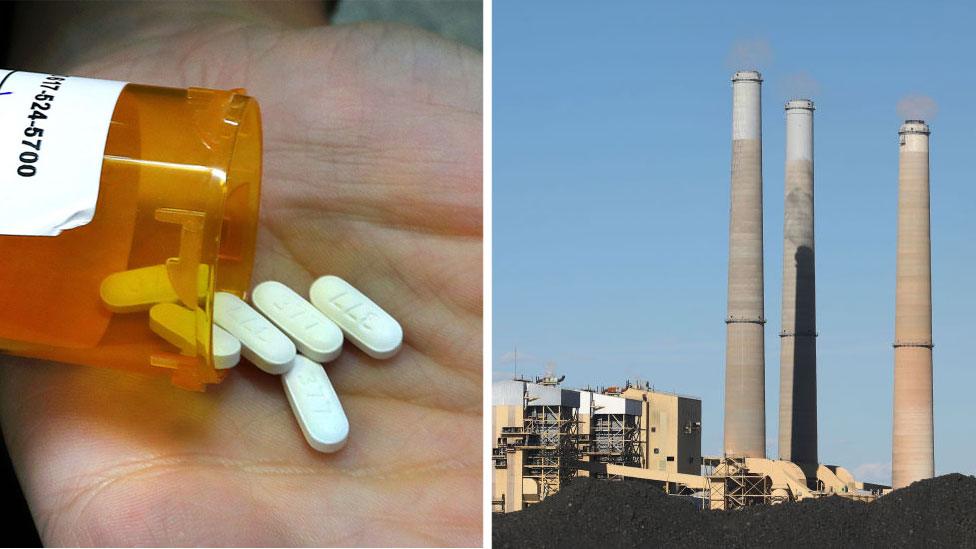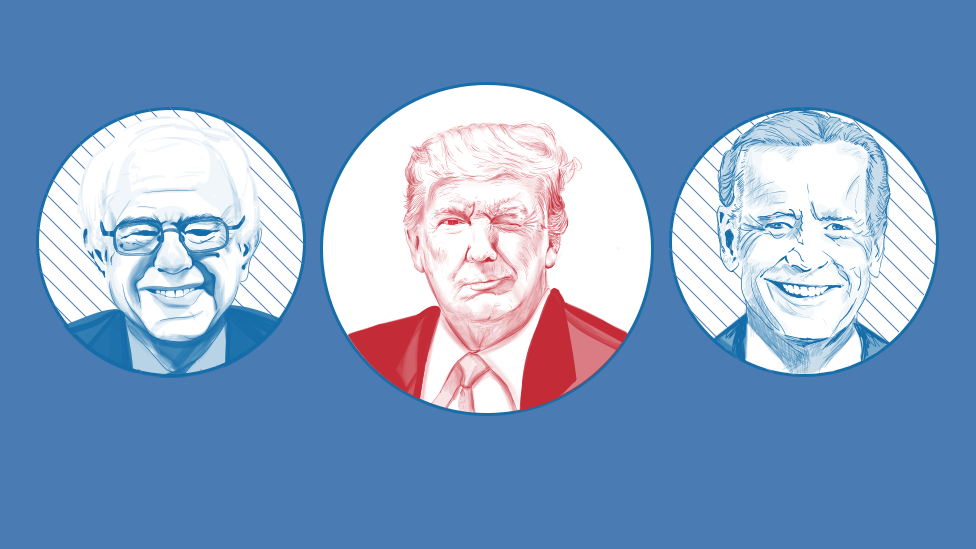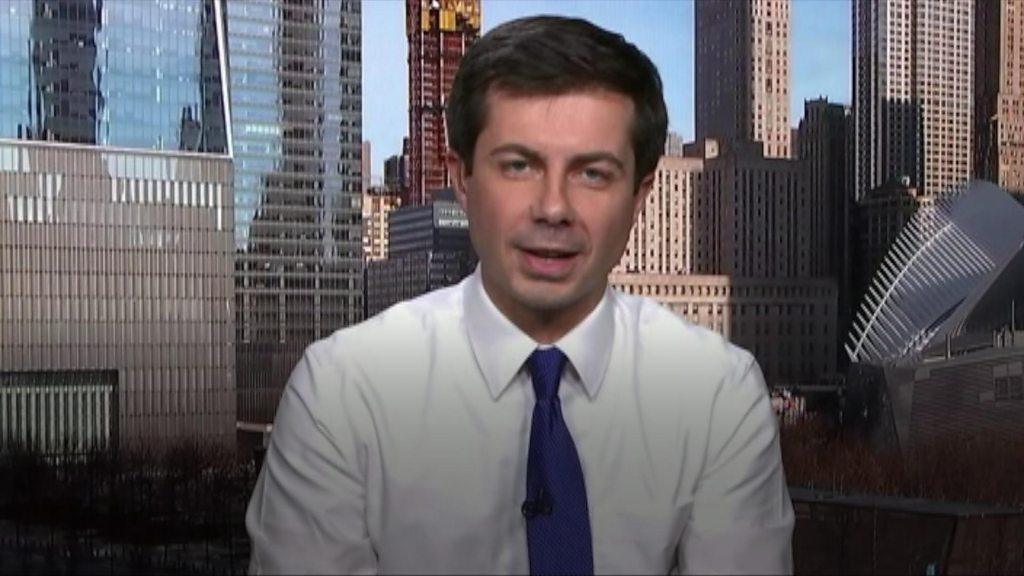Joe Biden: A lot going for him but he's carrying baggage
- Published
A look back at Joe Biden's life and political career
Joe Biden enters the Democratic presidential contest as a front-runner, if not the front-runner.
He has near universal name recognition, a close connection to the halcyon days (at least, for Democrats) of the Obama presidency, and the potential to raise vast amounts of campaign money through traditional Democratic donor networks.
Of course, so did Hillary Clinton in 2015 - and we all know how that turned out.
Like the former secretary of state, Mr Biden in his launch video seems to be defining himself as much by who he isn't - Donald Trump - as what he wants to do.
He said history would judge Trump's first presidential term as an "aberrant moment in time". He cautions that in the forthcoming presidential election "everything that has made America America is at stake".
In the coming days and months Mr Biden will have to flesh out his agenda and paint a picture for a nation that is more than just a refutation of the current White House occupant - but this is the first impression he has chosen to make as a formally announced candidate.

Joe Biden is quizzed by reporters on the day he declares
Focusing on the dangers of electing Donald Trump was an oft-criticised strategy for Mrs Clinton in 2016.
But with two years of the Trump presidency on the books, Mr Biden seems to be betting that a majority of Americans who have now seen Trumpism in practice have had enough - and that he has the best chance to win.
From a purely political viewpoint, Mr Biden has appeal to the kind of Midwestern voters who switched from Democrat to Republican and helped deliver the presidency to Mr Trump. He's a moderate, who might have more cross-over appeal to independent and Republican voters than some of his fire-breathing primary opponents.
Mr Biden, however, shares some of the political weaknesses demonstrated in Mrs Clinton's presidential race as well. Her lengthy time in the public eye left a long record for her opponents to pick apart, and bound her to a status quo establishment many Americans had come to distrust.
Expect the former vice-president's position against school bussing to end segregation in the 1970s, his chairmanship of the Clarence Thomas Supreme Court confirmation hearings in 1991, his support for the 2003 Iraq War, and stringent anti-crime and bankruptcy bills to be spotlighted by the diverse and talented primary field opposing him.
Then there's his advanced age, propensity for verbal stumbles, allegations of inappropriate physical contact and status as a two-time loser in past White House bids.
The former vice-president has a lot going for him. He also has a lot going against him. The durability of his campaign is one of the big questions hovering over the early days of the 2020 Democratic race. Those questions will soon be answered.

Who will take on Trump in 2020?


- Published4 February 2020

- Published5 March 2020

- Published12 March 2019
- Published18 March 2019
- Published14 February 2019

